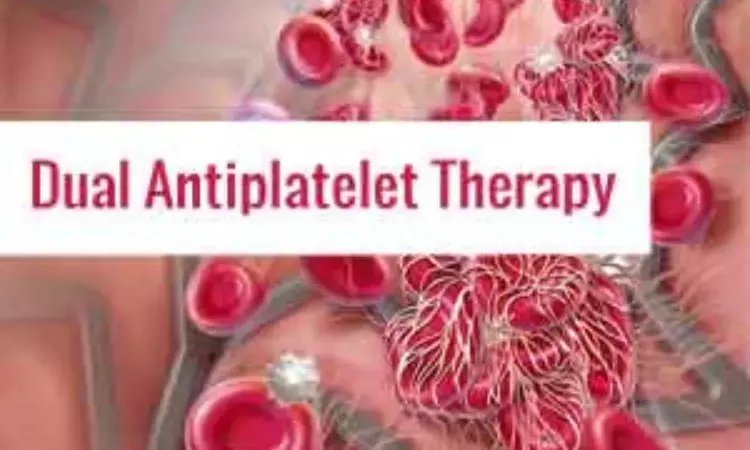- Home
- Medical news & Guidelines
- Anesthesiology
- Cardiology and CTVS
- Critical Care
- Dentistry
- Dermatology
- Diabetes and Endocrinology
- ENT
- Gastroenterology
- Medicine
- Nephrology
- Neurology
- Obstretics-Gynaecology
- Oncology
- Ophthalmology
- Orthopaedics
- Pediatrics-Neonatology
- Psychiatry
- Pulmonology
- Radiology
- Surgery
- Urology
- Laboratory Medicine
- Diet
- Nursing
- Paramedical
- Physiotherapy
- Health news
- Fact Check
- Bone Health Fact Check
- Brain Health Fact Check
- Cancer Related Fact Check
- Child Care Fact Check
- Dental and oral health fact check
- Diabetes and metabolic health fact check
- Diet and Nutrition Fact Check
- Eye and ENT Care Fact Check
- Fitness fact check
- Gut health fact check
- Heart health fact check
- Kidney health fact check
- Medical education fact check
- Men's health fact check
- Respiratory fact check
- Skin and hair care fact check
- Vaccine and Immunization fact check
- Women's health fact check
- AYUSH
- State News
- Andaman and Nicobar Islands
- Andhra Pradesh
- Arunachal Pradesh
- Assam
- Bihar
- Chandigarh
- Chattisgarh
- Dadra and Nagar Haveli
- Daman and Diu
- Delhi
- Goa
- Gujarat
- Haryana
- Himachal Pradesh
- Jammu & Kashmir
- Jharkhand
- Karnataka
- Kerala
- Ladakh
- Lakshadweep
- Madhya Pradesh
- Maharashtra
- Manipur
- Meghalaya
- Mizoram
- Nagaland
- Odisha
- Puducherry
- Punjab
- Rajasthan
- Sikkim
- Tamil Nadu
- Telangana
- Tripura
- Uttar Pradesh
- Uttrakhand
- West Bengal
- Medical Education
- Industry
Dual antiplatelet therapy reduces symptomatic intracranial hemorrhage in stroke patients, confirms study

A recent research compared the safety and efficacy of Dual Antiplatelet Therapy (DAPT) and Intravenous (IV) Tissue Plasminogen Activator (t-PA), the two prominent treatments for acute minor ischemic stroke (AIS). The key findings of this meta-analysis were published in the Journal of Stroke and Cerebrovascular Diseases that found DAPT significantly reduced the symptomatic intracranial hemorrhage (sICH) and overall bleeding risk when compared to IV t-PA.
After following stringent Cochrane and PRISMA guidelines, this study meticulously analyzed the observational studies and clinical trials from PubMed, Scopus and Web of Science databases. This reserch encompassed a total of five studies which involved 3,978 DAPT-treated patients and 2,224 t-PA-treated patients, provided a comprehensive comparison of outcomes.
The analysis revealed no significant disparities in achieving favorable outcomes between the two treatment groups. Measures such as achieving modified Rankin Scale (mRS) scores of 0-1 and 0-2, as well as combined mRS scores, showed no statistically significant differences. Similarly, changes in National Institutes of Health Stroke Scale (NIHSS) scores from baseline and mortality rates exhibited comparable results between DAPT and IV t-PA recipients.
However, a notable contrast emerged in terms of safety profiles. The DAPT group demonstrated a significantly lower incidence of bleeding events, including symptomatic intracranial hemorrhage (sICH), when compared to those receiving IV t-PA. This finding underscores the potential advantage of DAPT in minimizing the risk of hemorrhagic complications associated with AIS treatment.
The study emphasized the importance of these findings to guide clinical decision-making. While both treatments appear similarly effective in improving the outcomes, the markedly lower risk of bleeding events with DAPT suggests its potential superiority in terms of safety.
Overall, these findings hold profound benefits for the clinicians tasked with selecting the most appropriate treatment strategy for patients presenting with acute minor ischemic stroke. The healthcare professionals can make more informed decisions customized to need of every individual patient by weighing the efficacy and safety profiles of DAPT and IV t-PA. Further validation and implementation of these findings have the potential to enhance the outcomes and redefine the standard of care for individuals who are affected by AIS.
Reference:
Abbas, A., Hamad, A. A., El Din Moawad, M. H., Ewis, D. K., Youssef, R. A., Hamouda, H., Hassan, M. A., Aladawi, M., Elfil, M., Meshref, M., & Al-Mufti, F. (2024). Dual antiplatelet therapy versus intravenous tissue plasminogen activator with acute minor ischemic stroke: A systematic review and meta-analysis of safety and efficacy. In Journal of Stroke and Cerebrovascular Diseases (p. 107704). Elsevier BV. https://doi.org/10.1016/j.jstrokecerebrovasdis.2024.107704
Neuroscience Masters graduate
Jacinthlyn Sylvia, a Neuroscience Master's graduate from Chennai has worked extensively in deciphering the neurobiology of cognition and motor control in aging. She also has spread-out exposure to Neurosurgery from her Bachelor’s. She is currently involved in active Neuro-Oncology research. She is an upcoming neuroscientist with a fiery passion for writing. Her news cover at Medical Dialogues feature recent discoveries and updates from the healthcare and biomedical research fields. She can be reached at editorial@medicaldialogues.in


